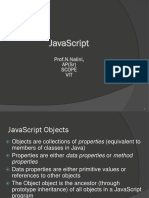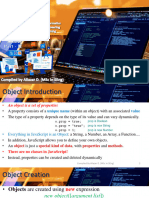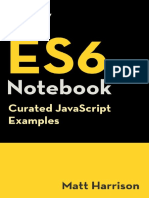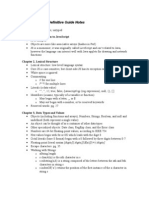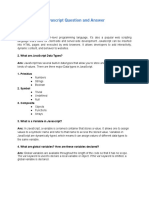0% found this document useful (0 votes)
21 views71 pagesAn Overview of ECMAScript 6 Presentation
The document discusses ECMAScript 6, the next version of JavaScript, highlighting its goals, design process, and key features such as block-scoped variables, arrow functions, and template strings. It emphasizes improvements for complex applications and libraries, and introduces new concepts like destructuring, symbols, and modules. The information presented is preliminary and subject to change as the standard evolves.
Uploaded by
pablo.ausejoCopyright
© © All Rights Reserved
We take content rights seriously. If you suspect this is your content, claim it here.
Available Formats
Download as PDF, TXT or read online on Scribd
0% found this document useful (0 votes)
21 views71 pagesAn Overview of ECMAScript 6 Presentation
The document discusses ECMAScript 6, the next version of JavaScript, highlighting its goals, design process, and key features such as block-scoped variables, arrow functions, and template strings. It emphasizes improvements for complex applications and libraries, and introduces new concepts like destructuring, symbols, and modules. The information presented is preliminary and subject to change as the standard evolves.
Uploaded by
pablo.ausejoCopyright
© © All Rights Reserved
We take content rights seriously. If you suspect this is your content, claim it here.
Available Formats
Download as PDF, TXT or read online on Scribd
/ 71

































